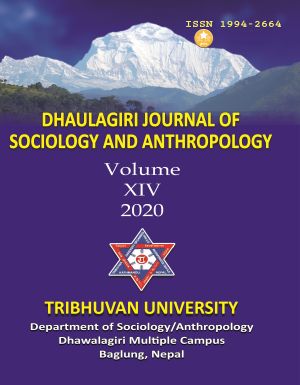The Nepal’s Political Relationship with India: Under the Lens of Path Dependency Theory
DOI:
https://doi.org/10.3126/dsaj.v14i0.26207Keywords:
critical juncture, interdependence, multilateralism, Nepali foreign policy, path dependentAbstract
The recent developments in Nepal’s politics from the abolition of autocratic monarchy, promulgation of a new constitution to successful completion of local, provincial, and federal level elections can be perceived as Nepal’s politics achieving miraculous success in forming democracy. Throughout the history, heavy reliance on the Indian economy has been considered as a major hurdle to Nepal’s sovereignty. This paper analyzes the Nepal-India relationship through path-dependent theory and argues that with series of above mentioned democratic success, the contemporary Nepali foreign policy towards India is at a critical juncture where Nepal can incorporate new changes to make its policies independent and uninfluenced by the Indian government. Analyzing the series of political and democratic events and foreign policies implemented to date, this paper aims to understand how the Nepali leadership can utilize these recent series of democratic successes as a turning point to break the traditional approach of forming policies to appease the Indian government and receive political and economic support and implement new policy changes leveraging on the multilateral organizations and developmental partners for its support economically and politically.




